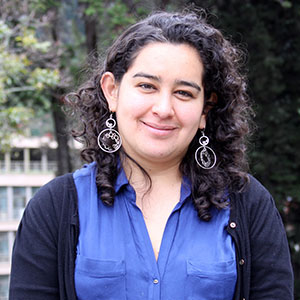Classical and Entangled two photon absorption in organic molecules
Mayerlin Nuñez (UniAndes)
ABSTRACT:
Two-Photon Absorption (TPA) is a non-linear optical process that has multiple applications in fields such as microscopy, biological imaging, microfabrication, and 3D data storage. Classical TPA has a quadratic dependence with the photon flux requiring high intensity lasers to drive this process. A linear dependence with the photon flux has been observed when pairs of entangled photons excite a two-photon transition (ETPA). The strength of the TPA process is determined by measuring the cross section. In this talk the classical TPA cross section is measured for organic molecules combining the z-scan technique with the process of two photon induce fluorescence. The ETPA cross section is also determined by a measurement of the number of photon pairs absorbed by the molecules using a coincidence detection scheme. The difference between the quadratic and linear dependence with the photon flux is experimentally observed.
BIO:
 Studied physics at the Universidad Nacional in Colombia. She received her master’s degree in physics from the Universidad Estadual de Campinas in Brazil and her PhD in physics from the University of Groningen in the Netherlands. She is currently an associate professor in the physics department of the Universidad de los Andes, Colombia, where she works in the experimental quantum optics group.
Studied physics at the Universidad Nacional in Colombia. She received her master’s degree in physics from the Universidad Estadual de Campinas in Brazil and her PhD in physics from the University of Groningen in the Netherlands. She is currently an associate professor in the physics department of the Universidad de los Andes, Colombia, where she works in the experimental quantum optics group.
